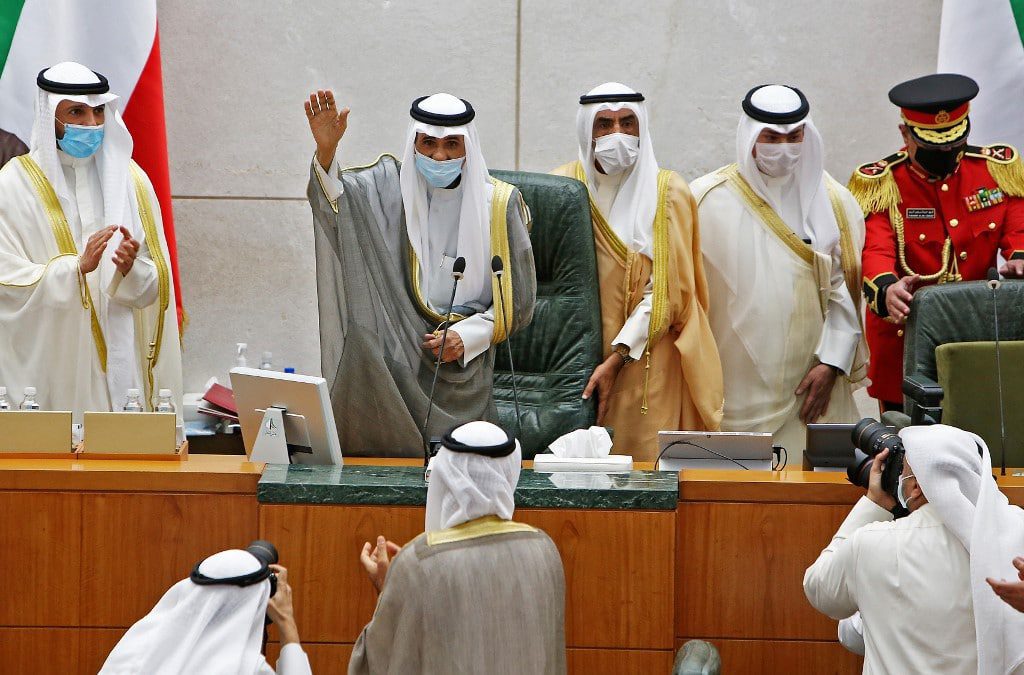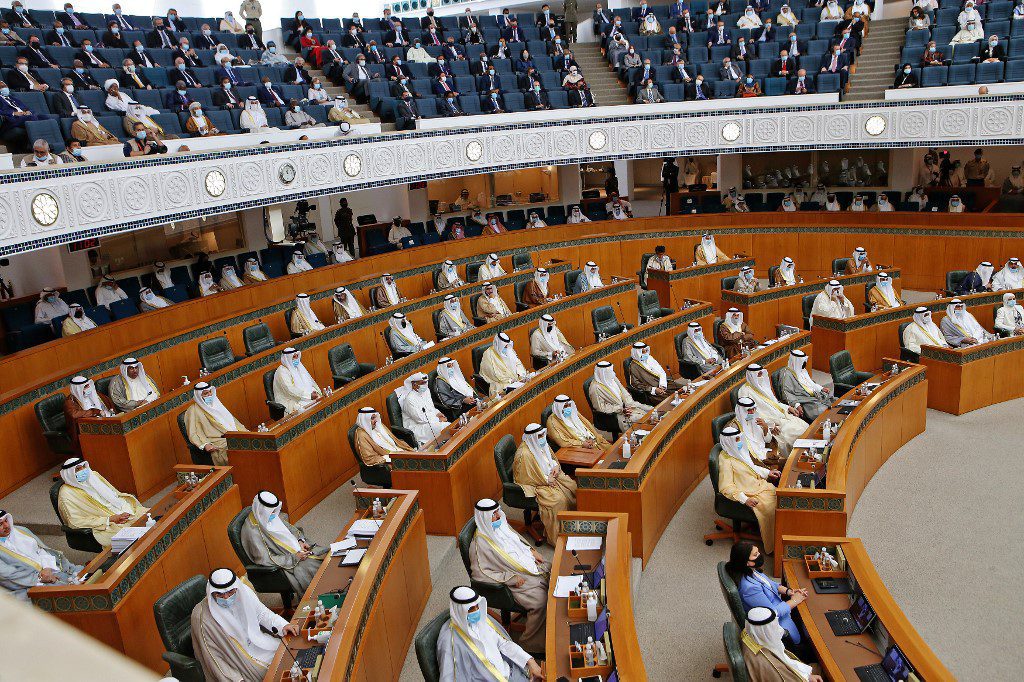
By: Mat Nashed
Kuwait’s new Emir, Sheikh Nawaf Al-Ahmed, is taking over one of the wealthiest oil producing states in the world. The 83-year-old was sworn in on 14 September 2020, a day after his half-brother Sheikh Sabah al-Ahmed Al-Sabah died in a Minnesota hospital at the age of 91.
Sheikh Sabah leaves a decorated legacy. He first served as a Kuwaiti diplomat and then as Emir from 2006 until his death. Over the last decade, he tried to calm tensions that Saudi Arabia and the United Arab Emirates (UAE) had with Iran and Qatar. He also repaired ties with Iraq more than thirty years after former dictator Saddam Hussein invaded Kuwait in 1990.
During the invasion, which both divided and shocked the Arab world, Sheikh Nawaf served as the Defense Minister. Married with four sons and a daughter, he also served as the Deputy Chief of the National Guard. He was eventually appointed Crown Prince, and now, as Emir, he promises to continue his half-brother’s legacy.
However, little is known about Sheikh Nawaf’s policy preferences. Unlike his predecessors, he never served as Prime Minister before assuming his position as Emir. He nonetheless faces several challenges to maintain Kuwait’s traditional role as a regional peacemaker.
First and foremost, Kuwait is coping with the highest budget deficit in its history, spawned by the coronavirus pandemic that has decimated oil prices. Kuwait has tried to deal with the economic crisis by imposing austerity measures. But austerity has merely triggered episodes of social unrest due to the reduction in public sector jobs and subsidies.
As a result, Kuwait is dealing with an acute liquidity crisis, leaving the government with no choice but to borrow from international finance institutions. But this potential solution has been voted down in parliament.
Commentators now believe that the only way around the political deadlock is for Sheikh Nawaf to make a bid for national reconciliation.
To his credit, he is attempting to do so. Unlike his predecessor, Sheikh Nawaf has met two veteran politicians in Kuwait’s opposition, amid calls for self-exiled opposition leaders to return to the political scene. Sheikh Nawaf has also entertained reform and economic proposals from two other political opponents.
These maneuvers are vital to convince the next parliament to approve a law that authorizes Kuwait to borrow money from the international financial institutions. Without a consensus in parliament, Kuwait could struggle to circumvent Saudi and Emirati pressure. After all, both Riyadh and Abu Dhabi would be keen to financially assist Kuwait in order to bring the country under its sphere of influence.

Saudi Arabia and the UAE may also try to make inroads with Sheikh Mishal, who is the current Crown Prince of Kuwait. Like Mohammad bin Salman (MBS) and Mohammad bin Zayed (MBZ), Sheikh Mishal shares a distaste for Islamists and the Muslim Brotherhood. But despite his prejudices, Gulf experts believe that Kuwait won’t turn on Qatar – a primary sponsor of the Brotherhood in the region – to appease its larger neighbours.
Giorgio Cafiero, the CEO of Gulf State Analytics which is a consultancy based in Washington D.C, told Fanack that Kuwait is a country with strong institutions compared to its Gulf neighbours. These institutions, he adds, curtail the power of any single branch of government or individual. Kuwaitis also have a genuine say in their country’s affairs, and most have long been opposed of any personality that invites Saudi or Emirati hegemony.
“Foreign policy decision makers need to take public opinion into account in Kuwait,” stressed Cafiero. “And since the foreign policy of Sabah remains very popular among Kuwaitis, I think we can expect continuity.”
Hani Sabra, an expert in Gulf affairs and the founder of Alef Advisory, isn’t as optimistic. He told Fanack that public opinion alone can stop Kuwait’s future leaders from pivoting towards Riyadh’s orbit. “I think [public opinion] matters, but it’s not a deciding factor,” he said.
For now, the future of Kuwait hinges on two factors: the outcome of the next parliamentary election and the candidate that Sheikh Nawaf chooses for Crown Prince. Parliament, which consists of 50 elected members, is tasked with approving the Emir’s Crown Prince candidate. It also has the power to pass or block legislation. However, the Emir still reserves the authority to dissolve parliament and veto legislation that parliament approves.
Courtney Freer, a Non-Resident Fellow at Brookings Foreign Policy, suspects that the new Emir will either appoint Sheikh Nasser Sabah al-Ahmed al-Sabah or Sheikh Nasser Mohammed Ahmed al-Jaber al-Sabah.
The former is a 72-year-old son of the late Emir and a firm supporter of Kuwait’s “Vision 2035,” which aims to diversify the economy and wean the country off oil. However, he was removed from the cabinet last year 2019 after accusing the Prime Minister of failing to crackdown on corruption. The latter candidate, 79, is the former Prime Minister and the nephew of Sheikh Nawaf. He stepped down in 2011 in the face of popular unrest that was triggered by corruption allegations.
Whoever is chosen – assuming Parliament approves Sheikh’s Nawaf’s candidate – will help shape Kuwait’s foreign and domestic policy. But thanks to the institutions in place, Freer believes that a repressive personality like Saudi Arabia’s MBS won’t ascend to power in Kuwait.
The U.S election in November 2020 will also play a role in determining the trajectory of Kuwaiti politics and the broader region. If Joe Biden wins, then Kuwait could potentially be called on to mediate confidence building talks between Washington, Riyadh, Abu Dhabi and Tehran. It’s nonetheless hard to predict Kuwait’s role in future disputes since nobody knows what those disputes will be. All that’s certain is that Kuwaitis would prefer its leadership to retain the role of neutral peacemaker in the region.


